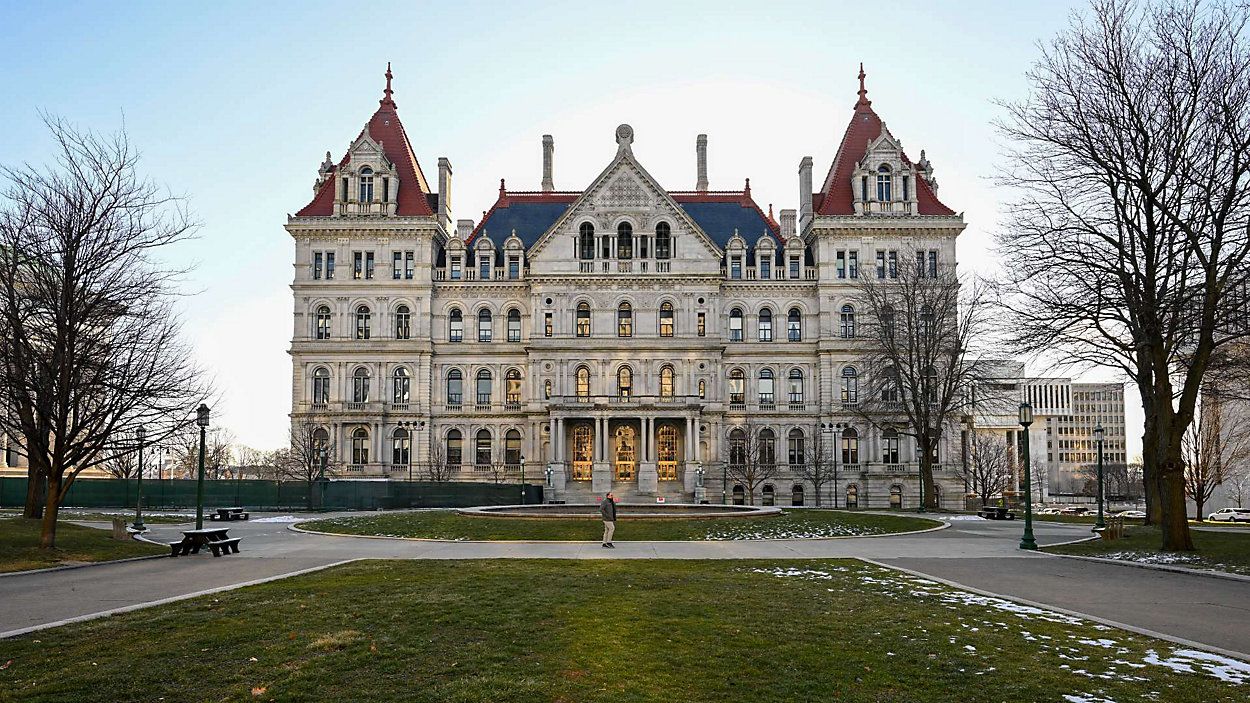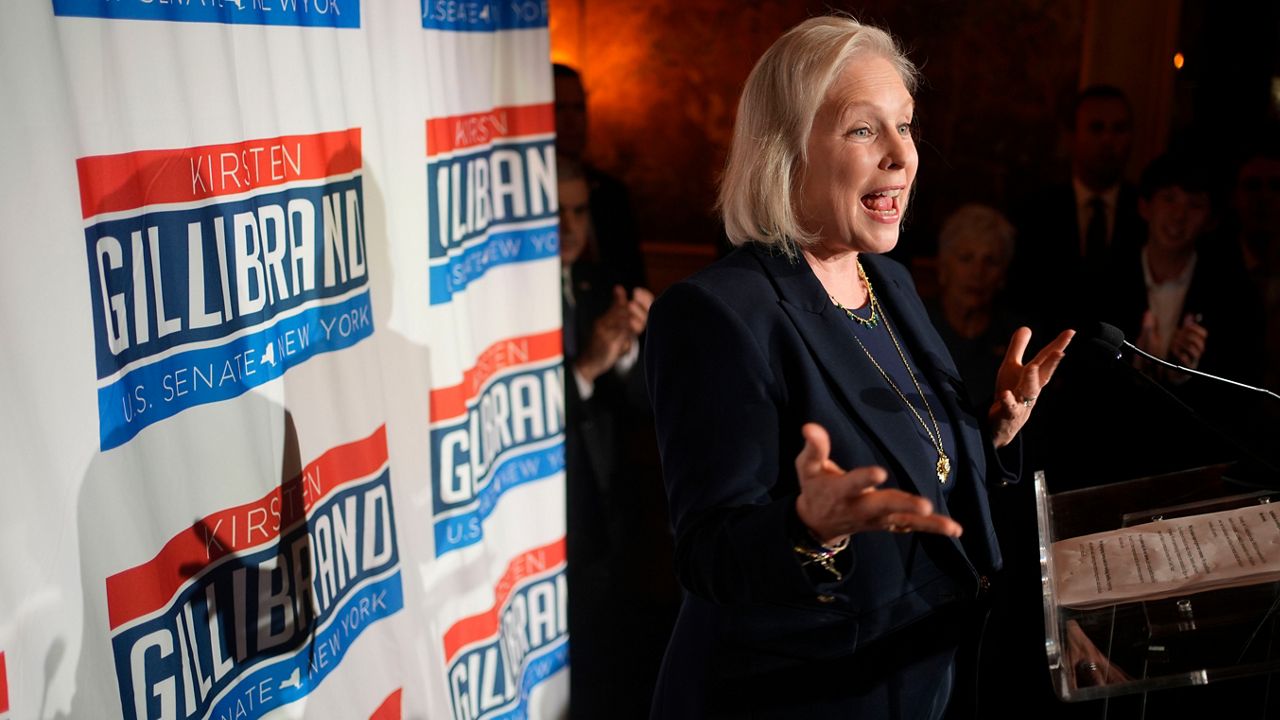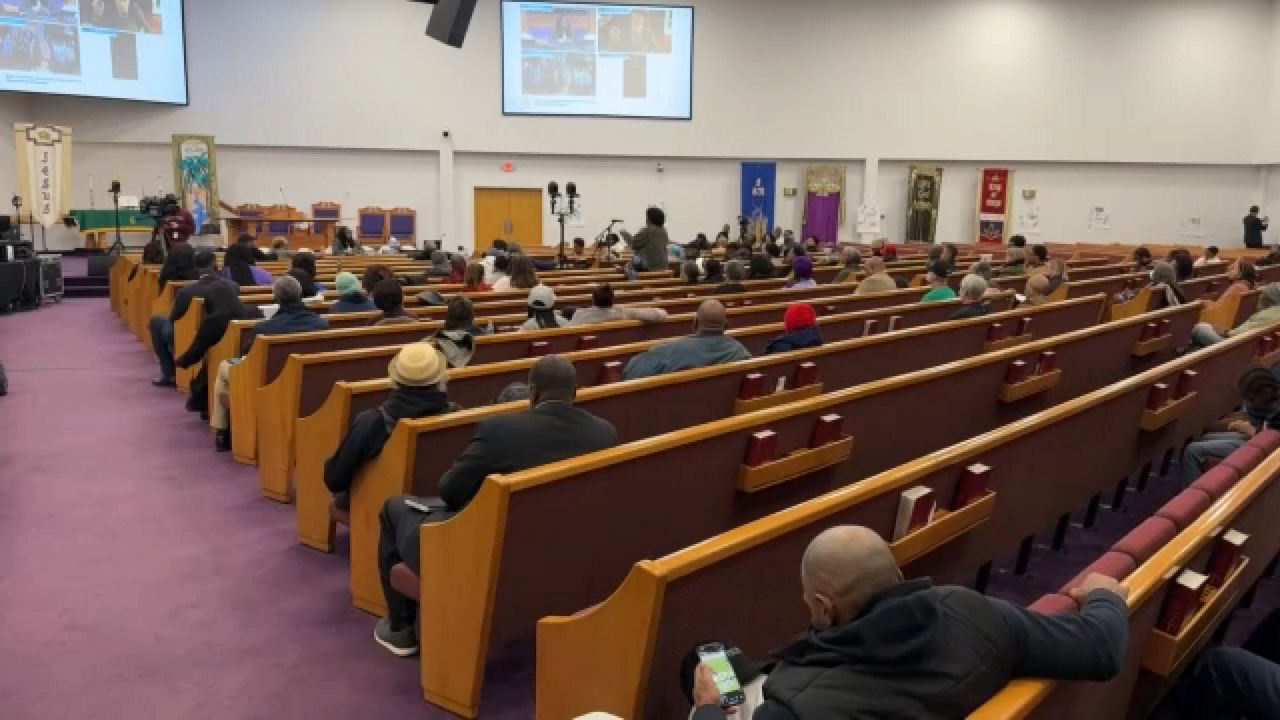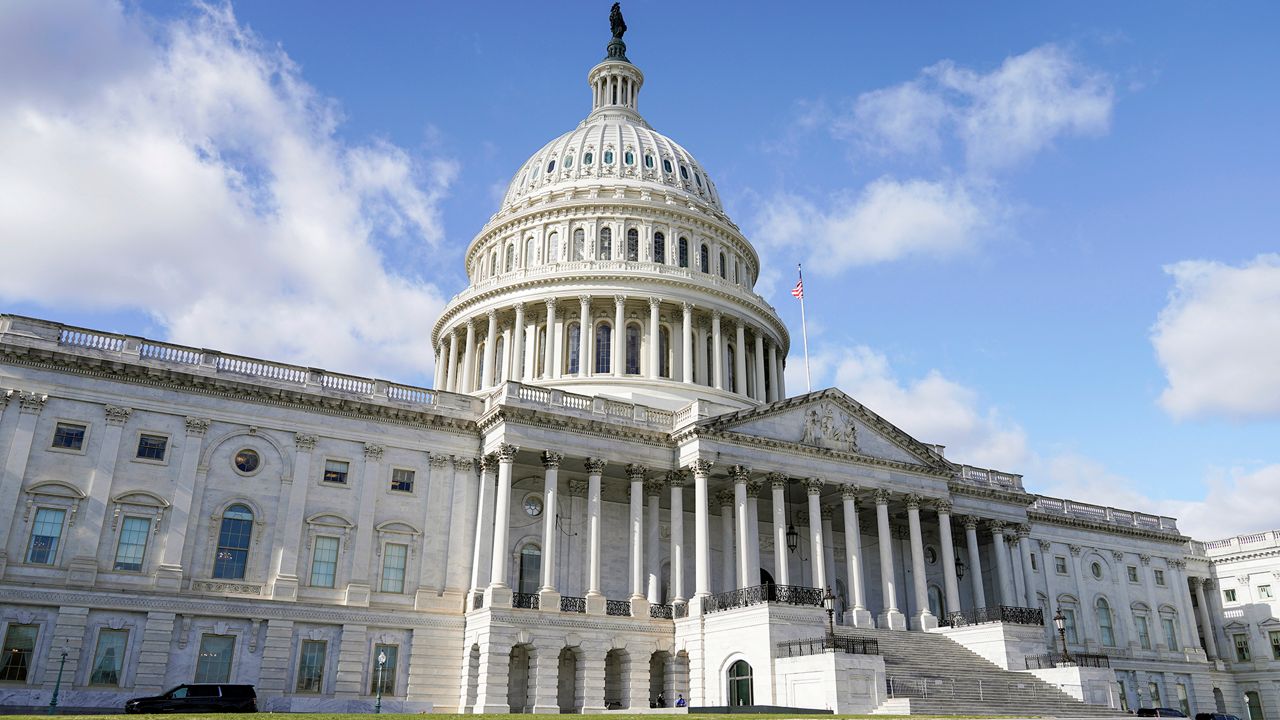Legislation that would regulate mandatory overtime for nurses hasn't been called to Gov. Kathy Hochul's desk, making advocates worry she'll decide to veto the proposals.
Hochul has been slow to act on three bills that would limit the number of consecutive hours New York nurses can work. The bills would impose a fine for employers who violate the mandatory overtime restrictions and expands them to include homecare nurses.
Health care workers typically work 12-hour shifts, but can be mandated to work an additional overtime shift.
"It's very hard to think that, for over year now, you'll show up for work and not know when you're going to be able to go home," said Pat Kane, the executive director of the New York State Nurses Association.
The nurses union has lost more than 9% of its members since the start of the COVID pandemic.
The national health system has experienced a deepening staffing shortage for years before the coronavirus. The state Nurses Association and other large labor unions were quick to support the bills, which lawmakers passed for the first time this year.
It's been an ongoing battle between health workers and providers about how to address the crisis. Both groups continue to put the pressure on Hochul, who has until Dec. 31 to sign the measures, and influence her decision.
Providers and long-term care facilities oppose the proposals, angered by additional penalties, and say it will decrease the quality of patient care.
Health providers like Karen Lipson, executive vice president of Leading Age NY, urge the governor to veto the legislation, noting compounding penalties with the new state staffing mandate that took effect in April.
"They're going to be forced by this legislation to either mandate overtime and incur penalties, or abandon the patients, which they won't do," Lipson said. "So the penalties will be inevitable."
Lipson was adamant lawmakers must increase Medicaid rates for long-term care facilities to better pay employees and retain them.
Legislative leaders committed hundreds of millions of dollars in the state's last two spending plans for staffing in nursing homes and long-term care facilities, but the aid continues to languish in the state's coffers.
Providers continue to wait on the Health Department to finalize guidance for the aid, Lipson said, with no timeline of when they'll receive the legislated assistance.
"Absent adequate resources, increasing penalties is just going to drain facilities and home-care agencies of the resources they need to pay workers," she said.
Health Department officials did not answer a question about the reason for the delay, but DOH and Hochul's staff noted the governor's $20 billion commitment over the next five years to rebuild the state's health care workforce.
“We are reviewing this legislation," said Justin Mason, a governor's spokesman. "And the governor looks forward to working with the Legislature during the upcoming session."
Hochul's representatives would not answer specific questions about her intent to sign or veto the mandatory overtime legislation.
“Our health care infrastructure cannot withstand any more nurse burnout," bill sponsor Sen. Jessica Ramos said in a statement Friday.
The Queens Democrat chairs the Senate Labor Committee.
"We applauded this essential workforce throughout the pandemic, and now we need to back that sentiment up with real support," she said. "S8063A is backed by NYSNA and SEIU 1199, who represent a significant portion of our state’s nurses. They are the experts on what our hospitals need to provide quality care. At this stage, the bill has not been called up to the governor, so we will have to see when that happens what her position is. I sincerely hope that she sees this bill for what it is: a necessary piece in her comprehensive efforts to retain nurses and rebuild a resilient public health infrastructure.”
Kane says hospitals and providers are quick to abuse the mandatory overtime, which is supposed to be used for emergency response. "This practice is one of the reasons why nurses have left and continue to leave," Kane said.
"No one can function at a high level with what you're demanding them to do."
Creative scheduling, overtime incentives for when it's needed, bonus structures and other models would improve morale and retain workers, she said.
Hochul originally declared a state of disaster emergency in September 2021 because of the health staffing crisis that has caused another issue. The executive's disaster emergency prevents hospitals and health facilities from fines for not following mandates or mandatory overtime protections in state law.
It's tied the hands of the state Labor Department from enforcing the state statutes and investigating nurses' complaints of abuse or poor working conditions.
Kane wants Hochul to let the executive order expire. Representatives from the governor's office did not answer questions about the issue.
Other state investments to address health care staffing include $22.5 million for training capacity of health care institutions and $47 million to relieve student debt of health workers. All hospitals in the state have submitted staffing plans to the Health Department, according to a statement from the department.










